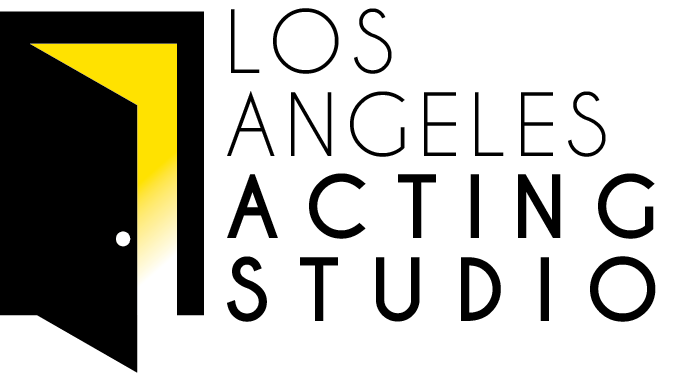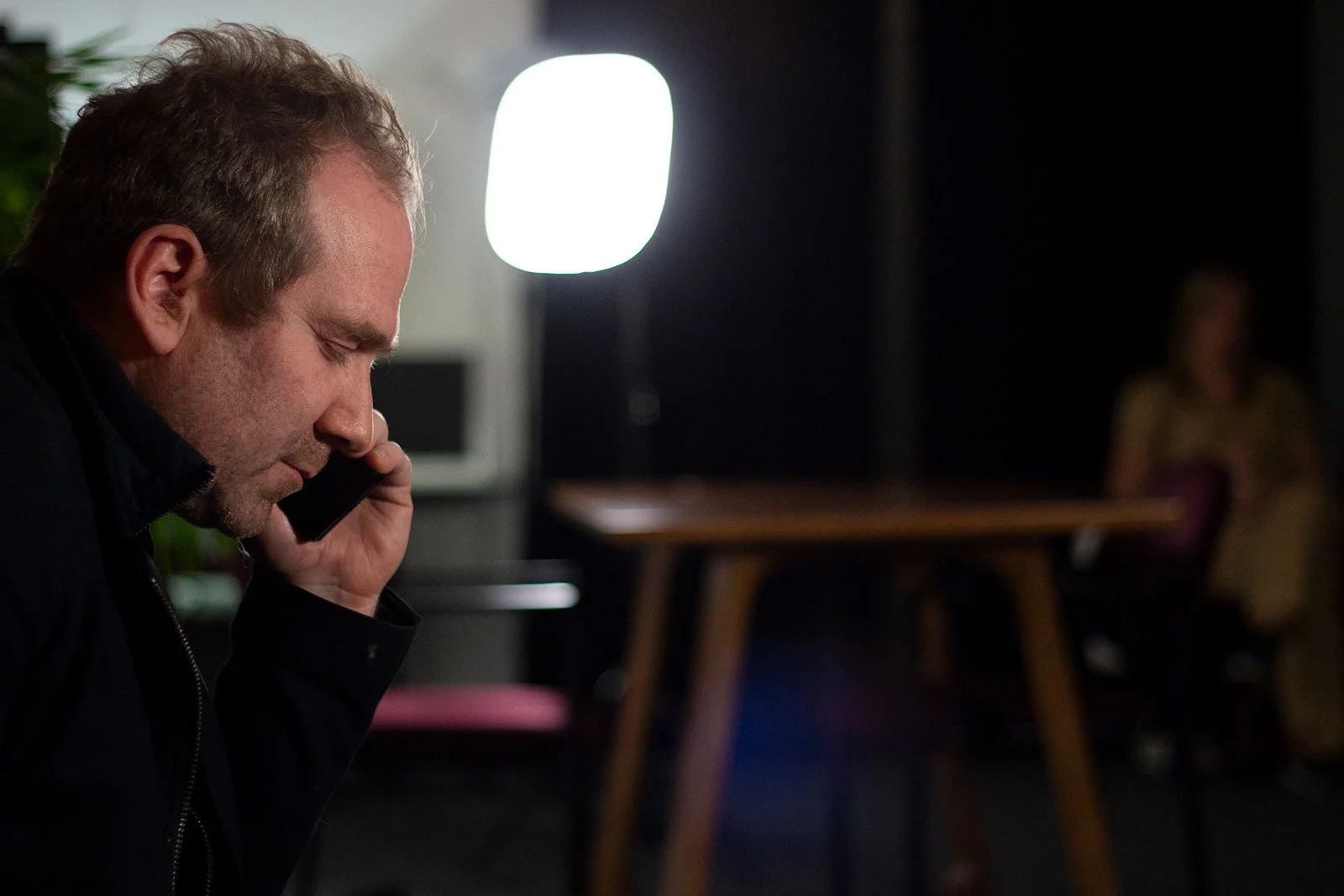THE WORK
-
Based on Meisner’s repetition exercise (but very different), Raw spontaneous human experience between two or more actors. To develop trust of oneself and create truthful organic impulses that the actor must act on with no apologies. The goal is to get you out of your head and into your body, to have complex relationships with complete strangers, to listen and respond, not just with your ears but from your entire body. To affect others and be affected, and to find out how others view you.
Basically, Raw Moments is an actor’s tool to get out of their own way and maintain a moment to moment connection with their partner(s). The Raw Moments make the actor respond with their own unique personal point of view. Raw Moments transfer to every aspect of the Hybrid.
-
Hybrid Meisner© conditions actors like athletes in what we call “doing the doings”. We firmly believe that acting is the reality of doing. You cannot watch a scene on film or television without the characters literally doing realistic activities while the action of the story moves forward. Moments in life and art are determined by what people are actually doing. Everyone remembers what they were doing when some major life event happens. The first question is what are the characters literally doing in the scene? So if acting is action; what are the characters literally doing? We get you literally living and doing in your first month of studying with us. We employ difficult activities that take great concentration to complete.
We have you make realistic entrances and exits with much attention spent on every detail. We deploy physical destination meaning: where are you coming from and where are you going? We have you live life and do in your own environment- looking for lost objects, while talking to multiple people on the telephone. All this training is to take attention off yourself, develop concentration, public solitude, and to get you out of your own way. Our process is very specific every scene you do as yourself in imaginary circumstances can also be done as role preparation for a character later in your training process. All Reality of Doing assignments have duality. Yes – there is a method to our madness.
-
Behavior, both with props and with other actors. Out of each moment and each situation human behavior arises. The work is focused more on how human beings behave than what they say. We believe there is much more screen time spent without spoken dialogue than with. We teach the Unspoken Word, we feel that much of film and television acting is about what is not being said.
-
Realistic relationships are a huge emphasis of the Hybrid Meisner© training. How have you watched a movie, television show or a play and you didn’t believe the actors in the scene were engaged in truthful relationships? The characters are supposed to be married but they didn’t really live or behave naturally with each other. That is because the actors are usually working from an idea or concept of what they think the relationship is supposed to be. We believe that any idea in acting is a bad idea. An actor cannot act from an idea because an idea is not emotionally based.
Relationships are based in how you feel about someone. There are no two relationships that are the same. A relationship is shared experience, but that does not mean both people share the same feelings about the relationship. In our classes you get real used to engaging with other actors, both as yourself and in imaginary circumstances. You start to understand that each person makes you feel completely different about yourself. We also believe that actors need to have authentic relationships with each other, as well as relationship with themselves.
Much of acting is about the character’s feelings about themselves in the given circumstances. On numerous occasions directors and casting have complimented that our actors know how to have realistic relationships with complete strangers. That is because the actor has done the work to give themselves the permission to have these relationships with strangers, for this we are very proud.
-
Learning to emotionally prepare is taught in the classes. How to be detailed and truthfully specific. Developing specifics and a vivid imagination takes time and is an organic personal process for each actor. How to have daydreams which cause transformation in the actor’s inner life. Emotional preparation is not about making “head” choices of how to be in the scene, but to let the script and your imagination take you over- consume you. When you are fully emotionally prepared your behavior and body will respond in the world of your script.
-
Improv work is one of the main thrusts of the studio training. This original improv work is based on language of the Meisner technique and the raw realness from filmmaker John Cassavetes New York Acting workshops of the 60’s. The class instructors write all the fresh content improv situations, often writing custom improvs specifically for each actor and the personal breakthroughs he or she needs to have. The purpose is to live truthfully within imaginary circumstances. The training process of doing these film and television style improvs is beyond fun. Essentially the improv works just like a script – each actor gets common knowledge shared by the scene partners and private knowledge that their partner does not know. The focus is for the actors to truly believe that the situation is really happening at that particular moment, and to work off the behavior of each other, as opposed to playing the story. Actors learn to trust their preparation as opposed to playing it. It’s about complete freedom in the world of the script and actors trusting their authentic instincts in order to behave organically in the conflicts of the script. Many improvs are written for three actors as well as two person scenes. We design this intentionally for the actors to learn how to work as an ensemble, a necessity to working in film and television. We are sticklers for realistic relationships and the subtleties of the human condition, whether comical or tragic. Improvisational freedom in the work is the goal.
-
Heightened listening and truthful responding Cold Reading. All scenes are assigned by the teacher. The scenes are either from plays or film and television scripts. The material and role is always something for the actor to sink their teeth into. We believe in stretching our actors and also making sure the actor is nailing the types of roles they would book. When actors are truly improvising within a scene, it appears professionally directed. The goal of scene work is to have improvisational freedom within the scene. The actor applies everything learned in technique and improv work. After performing the scene, the actor is given very detailed notes by the teacher.
Scene study also covers the basics: objectives, actions, beats, script analysis, given circumstances, character development, emotional preparation, language, and consistent through line. The goal is as good as the actor gets in improv work, they should also be in a written scene.










